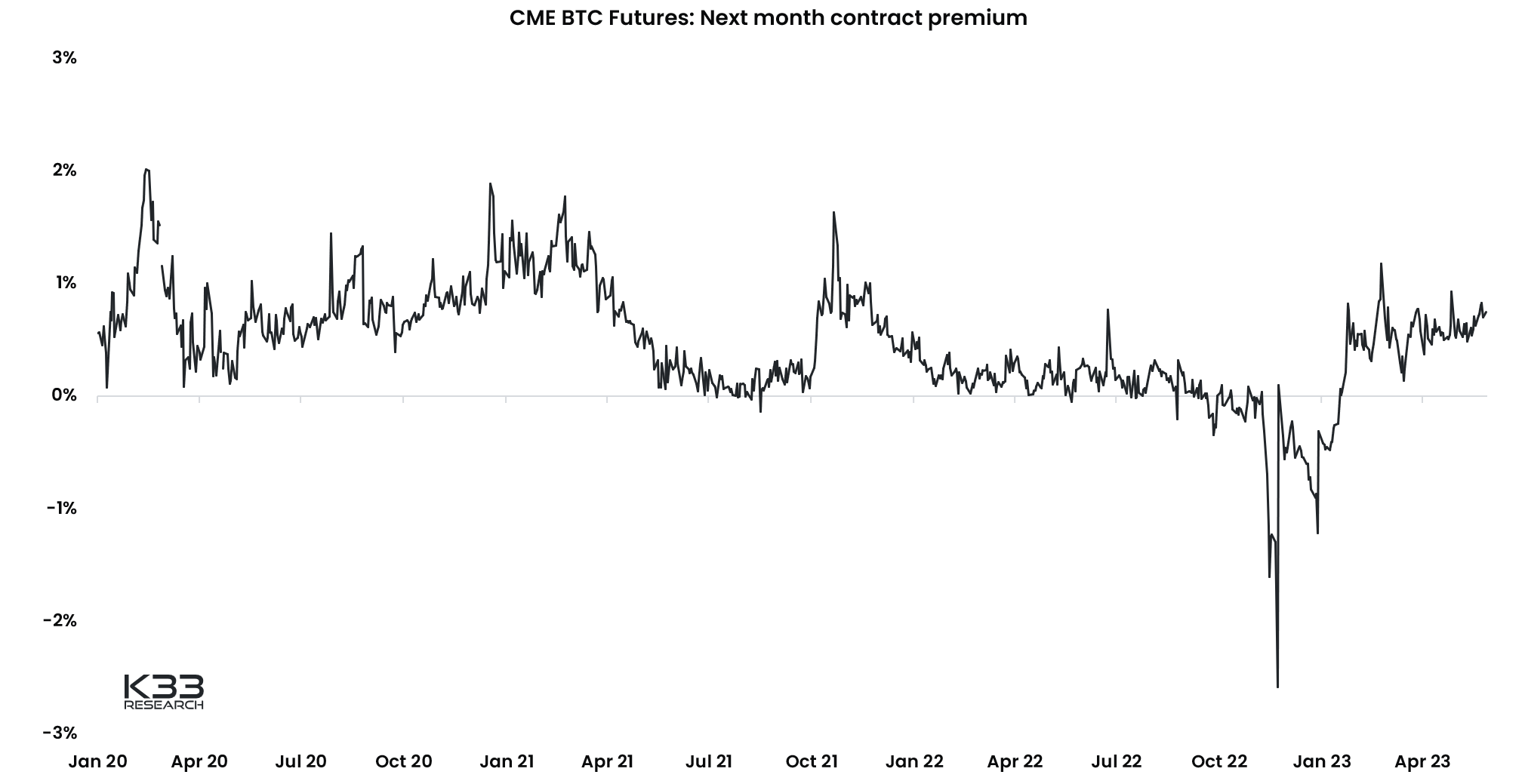ProShares’ bitcoin (BTC) futures exchange-traded fund (ETF) is increasingly underperforming BTC this year, diminishing its appeal as a vehicle for betting BTC’s price appreciation, according to digital asset research firm K33 Research’s report.
The price of ProShares’ Bitcoin Strategy ETF (BITO) has risen 47% year-to-date, trailing BTC’s 60% gain over the same period, K33 Research noted.
The underperformance stems from the costs associated with the fund’s structure. BITO does not purchase tokens, instead it holds BTC futures contracts on the Chicago Mercantile Exchange (CME). The fund must roll over the contracts every month as they expire, making it vulnerable to the price difference between terms. If next month’s contract trades at a premium to the nearest expiry – a phenomenon called contango and typical during a bull market – over a sustainable period, the fund will compound losses due to the “contango bleed.”
When BITO started trading in October 2021, several observers predicted that the fund might underperform the spot market by 10% to 13% annualized, CoinDesk reported at the time.
In its first year, the fund trailed BTC’s performance only by 1.8%, as the crypto bear market helped to mitigate the contango bleed.
This year’s market rebound, however, exacerbated the fund’s vulnerability to rolling costs as the CME futures market returned to trade in contango. The performance gap during the year’s first five months has already reached the level that analysts predicted for a whole year.

(K33 Research)
Investors should expect this trend to ensue, K33 senior analyst Vetle Lunde said in a note. “The strong term structure remains an issue for the viability of using BITO as a tool to maintain long exposure,” he wrote in the report.
The U.S. Securities and Exchange Commission (SEC) has consistently denied applications so far to list exchange traded funds that would directly invest and hold BTC, despite industry players advocating that it would be a superior product for consumers.
The underperformance “illustrates the shortcomings of futures-based ETFs compared to spot ETFs,” and how the “SEC’s rigorous stance against direct BTC spot ETFs harms investors,” Lunde added.







